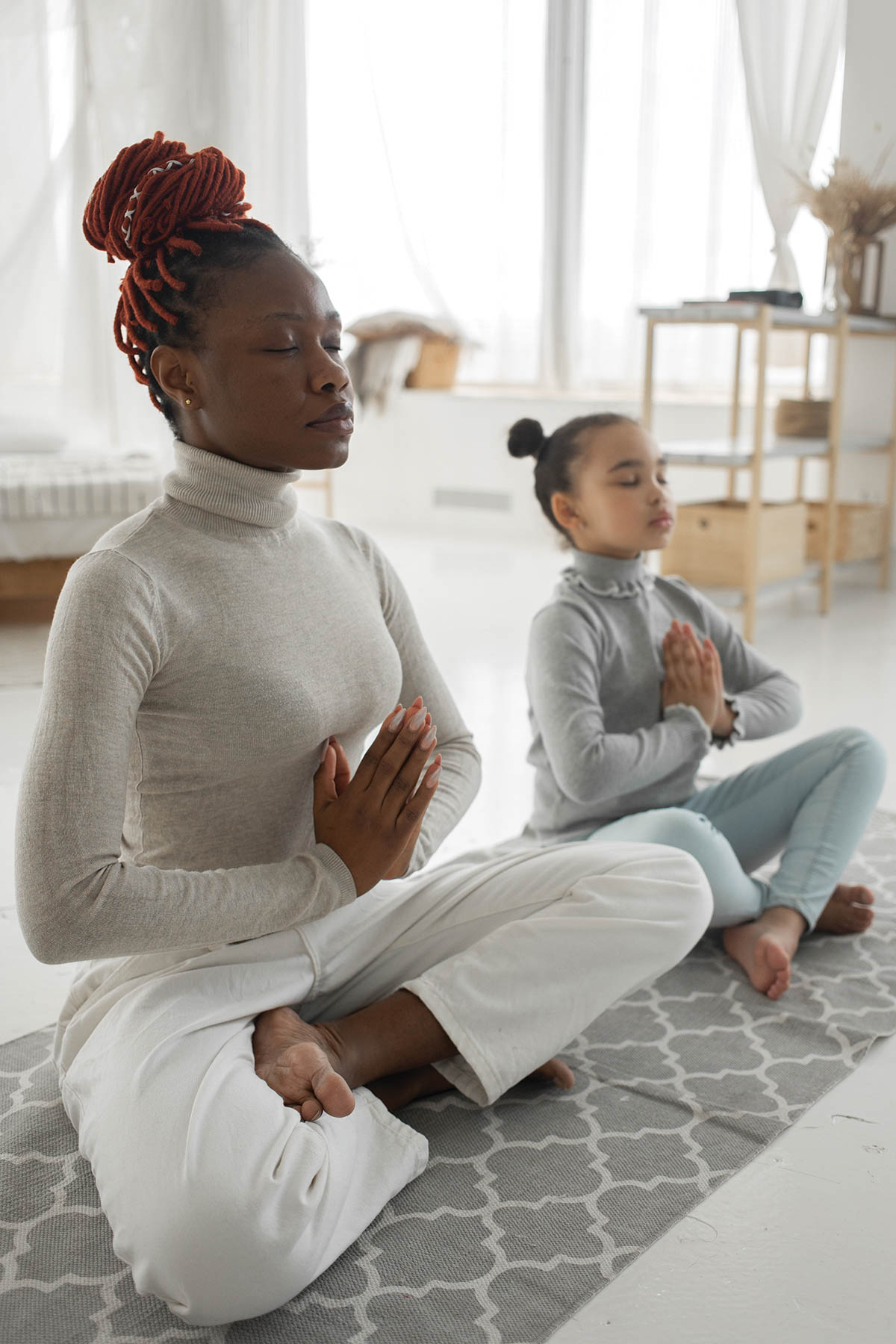Why Practicing Mindfulness Is Beneficial for Children

Perhaps you practice mindfulness by taking a yoga class a few times a week or practicing a few deep breaths before handling the 10th sibling squabble of the day. These little rituals calm you down and keep you centered in the here and now, but did you know they can do the same for your kids, too? In fact, children of all ages can benefit in many ways from daily mindfulness practice.
Even a few minutes a day can significantly impact your children’s lives. You’ll notice kids get many of the same benefits from mindfulness as adults. Here are some benefits of mindfulness for children:
1. Increased Attention Spans
Kids have several challenges to their attention span. The average child can only focus for the equivalent of 2 to 3 minutes per year of their age. So, a 3-year-old might concentrate for six minutes at a time, and a 12-year-old could focus for 24 minutes.
Add this already minimal amount of time in their attention spans to the lengthy lessons they sit through in school and the need for immediate gratification they get from TV and their attention spans reduce even further. Mindfulness can help your kids ignore distractions and stay in the moment.

2. Less Stress
Our kids’ worries and stressors may seem trivial to us as adults. However, our children have to deal with circumstances they’re not developmentally prepared for yet, such as bullying, terror in the media, racism, sexism, difficulty building friendships, social pressures and academic performance stress. Adding in daily mindfulness practice can help them perceive what’s in their control and let go of what isn’t.
3. Easier Transitions
Transitions are especially difficult for kids — moving from one activity to another can induce panic and frustration. Your child may struggle with small transitions like stopping one play activity and moving to the next or something more complex like ending summer vacation and returning to school. Practicing mindfulness with kids through these transitions will help them stay grounded and reduce their anxieties.
4. Ability to Better Regulate Emotions
One of the most challenging obstacles for children is their impulsiveness and inability to think through the situation and their reactions before letting loose. A broken toy or unkind word from a friend can turn into a blow-up or a meltdown in no time at all.
Mindfulness techniques like deep breathing can help your kids learn to pause before they react. They’ll gain better control over their emotions and select more appropriate responses — something we, parents, could probably use as well.
5. Higher Self-Esteem
It’s a natural response for kids to look to external sources for validation and acceptance, just as they’ve been relying on their parents since birth. However, this focus can quickly bring your children down and make them feel less than others.

One look at any magazine, TV show or social media platform, and you’ll see why even young kids don’t feel good enough — they compare their average day to someone else’s edited highlight reel. Mantras are a powerful form of mindfulness that can help your kid or teen transform the way they talk to themselves.
Easy Mindfulness Activities for Children
Teach your kids a variety of mindfulness activities, almost like building up a mental health toolbox. With these methods, your children will be better equipped to handle their daily stressors:
- Deep breathing
- Guided meditation
- Gratitude
- Sensory awareness
- Mantras
- Progressive muscle relaxation
This list only scratches the surface. Feel free to add whatever practices you or your child want to try and anything you already do that seems to work well.
Consistent Practice Is the Key
Just like with any other new skill, you must encourage frequent practice. Add mindfulness moments to their daily routines. Demonstrate how you incorporate these practices and work on improving as a team. Hold their hand while they’re just starting, but slowly release the responsibility of remembering over to them. Check in every so often with mindfulness activities designed for the family to share progress with each other.
About the Author

Mia Barnes is a health and wellness writer and editor-in-chief at Body + Mind. She specifically enjoys writing about women’s fitness, as well as mental health-related topics. When she’s not writing, Barnes can usually be found reading poetry, taking a dance or cardio class, or hiking.






